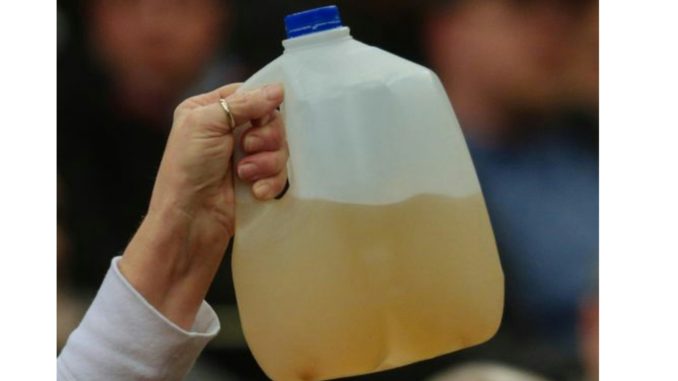
Flint hasn’t had safe water since April 2014.
That’s almost 3 years of cooking with, bathing in, drinking contaminated water since the city of Flint, Michigan separated from the clean Detroit water system and started pulling water from the toxic Flint River to save money, unbeknownst to Flint’s residents.
After this news went viral last year, Governor Rick Snyder declared Flint Water Crisis a “State of Emergency”, 2 years after the crisis had begun.
The state still required Flint residents to pay their water bills for water they couldn’t even use.
To make matters worse, the city also suspended their contract with waste management company without securing a new contract. As garbage bags pilled up in the streets, city officials asked residents to keep their trash inside their homes, just months after declaring the water crisis a state of emergency.
State prosecutors planned to criminally charge Flint government personnel with the cover up of Flint’s toxic tap water in August 2016, but during last month’s House Committee on Oversight and Government Reform, Republicans voted to block a subpoena of Governor Snyder’s records of the water crisis.
“House Republican members voted unanimously to defeat an amendment put forward by Democrats seeking to subpoena Snyder for documents related to the city’s water problems”, said reports.
Flint’s water rates are the highest in the country, says a study based on information by the Environmental Protection Agency.
“Residents pay a 35% increase in water and sewer rates enacted by Mayor Dayne Walling in 2011. City officials say the rate increases are needed to maintain the city’s aging infrastructure”, says reports.
Last year, on February 26, 2016 Gov. Snyder introduced the Water Relief Act, a program where the state pays 65% of Flint residential water bills & 20% of commercial bills.
That program ends today, March 1, 2017 as officials say Flint’s water has tested below the federal level for lead and copper for the last 6 months. “The state is recommending the use of filtered water in areas where pipe replacement is occurring”, which is all paid for by taxpayers.
The state does provide water filters for residents, and advises them to not drink unfiltered water, despite claims of the water testing below federal levels.
